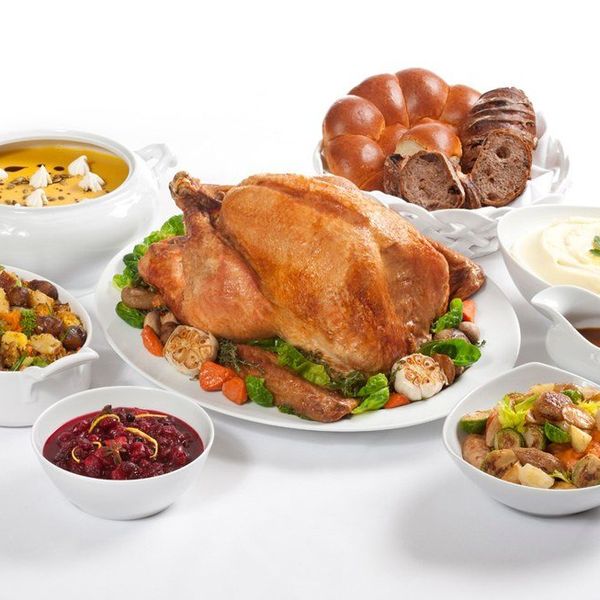Thanksgiving is a holiday meant for spending time with loved ones, giving thanks, and of course, feasting over turkey, mashed potatoes, and pumpkin pie. That's been the American tradition ever since the first Thanksgiving celebrated by the pilgrims in Plymouth in 1621.
While that is the Thanksgiving story many of us have come to know and love, it is actually full of historical inaccuracies. Firstly, there is still some controversy as to whether the feast in Plymouth was actually the first thanksgiving feast in North America. Settlers around the continent had held other feasts to give thanks, particularly in late autumn to celebrate a fruitful harvest. Additionally Native Americans would have held harvest festivals long before any Europeans arrived.
The one reason the Plymouth feast can be considered the first Thanksgiving is because it was the first to be repeated around the same time of year in 1623, and by order of civil authority (the governor of the Plymouth colony) and not by the church, connecting it to the secular celebration of Thanksgiving today. Nonetheless, for centuries Thanksgiving would still hold a very Christian meaning.
Secondly, the menu of Thanksgiving today would have been virtually unrecognizable to the pilgrims in 1621. Today, most Thanksgiving tables feature turkey with stuffing, cranberry sauce, mashed potatoes, and pumpkin pie. In 1621, however, nearly all of these things would not have been available to pilgrims in New England. Some wild turkey may have been at the feast, but the more likely meat served was duck, goose, swan, and venison.
However the main part of the meal may not have been meat at all, but seafood. Given what is more readily available in coastal New England, bass, cod and shellfish like lobster and mussels were a much bigger portion of the feast than meat.
Potatoes would not have been at the first Thanksgiving because they had not yet been introduced in North America, nor had they gained much popularity in England at the time. The sweets such as cranberry sauce, pumpkin pie and other desserts also wouldn't have been available because the pilgrims sugar supplies were all but gone by autumn of 1621.
Over the next two centuries, thanksgiving celebrations were held sporadically. Instead of a holiday on a set date, feasts of thanksgiving were often called by the church to give thanks for a plentiful harvest, the end of a drought, or a military victory. Often thanksgiving varied from state to state, and was much rarer outside the northern states.
Thanksgiving didn't start to gain national attention until the mid 19th century when one woman, Sarah Josepha Hale, began an editorial and letter writing campaign to make Thanksgiving a national holiday. She wrote to five presidents until finally, Abraham Lincoln made the final Thursday in November a national holiday in 1863.
It stayed that way until 1939, when President Franklin D. Roosevelt moved Thanksgiving up a week in a November with five Thursdays, hoping to boost spending in an economy still recovering from the Great Depression. The move proved unpopular, and by 1941, the government officially fixed the date to the fourth Thursday in November.
Today Thanksgiving has moved away from its religious origins and instead become a more secular holiday about giving thanks and sharing food with loved ones, as well as marking the start of the holiday season.





















